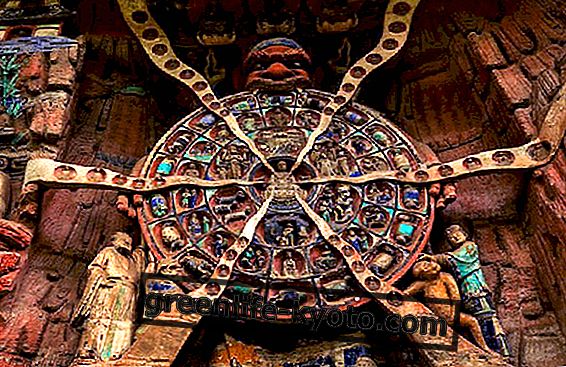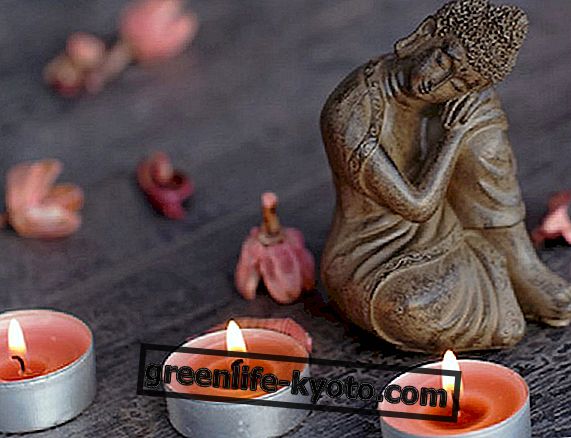
They are two of the most recurrent concepts in Hindu texts, in the jargon of yoga practitioners and in new age trend books. Yet they are often associated with meanings adapted to Western philosophies or traditions that are less profound than that of origin, to allow for easier absorption.
But what karma and dharma really are, two pillars of Eastern religions, not just Hinduism, so much so that even Buddhism, Jainism and Sichism are called Dharmic religions.
What is karma
The two concepts are closely related to each other and have numerous meanings and levels of interpretation, so rather than dwelling on which is the exact interpretation and which are the incorrect ones, we should try, among all those correct, to assimilate the deeper interpretation .
Karma is often presented to us as the eastern version of the law of retaliation, based on an ethical-moral concept of right and wrong that chases after the cycle of reincarnations. Karma literally means "action", without negative or punitive meanings .
We have often been told that bad deeds produce bad consequences and good ones generate good situations, but this pair of good-bad opposites is based on a judgment that has little to do with the spirit and much with human morality.
Instead, what is meant in the ancient texts is that an action is generated by a state of consciousness that leaves an imprint in it, the higher the state of consciousness that operates, the brighter its consequences .
A small, metaphorical practical example : if you throw an object over your shoulder in thought, turning to it you will find it in a casual place and it could get in your way, but if you consciously put it back in its place, you know where you can find it if you need it and your house will keep your order.
It is therefore not a question of good acts or bad deeds from the external point of view, but of how much conscience or ignorance are involved in the action : eating ignorantly, often causes diseases, but these are not punishments, they are natural consequences.
What is Dharma
The more our knowledge increases, the more we are aware of the consequences involved in our actions and the more we can facilitate the conditions of our future. This is also true of life in life, in fact there are a whole series of actions, perhaps not very rational for the common mind, which bring fruit in subsequent lives.
And this is where dharma comes into play. Dharma is often translated as "law", but refers essentially to the inner law of every being, disconnected from any moral implication .
Take for example the great battle of the Mahabharata: the dharma of Arjuna, one of the protagonists, is to be a warrior, and all his attempts to avoid the battle, the massacre, to prefer accommodating compromises based on goodwill, non violence and altruism they are mechanical of its lower nature, of a far-from-mind mind and of a wobbly heart.
His dharma, his cosmic role, requires from him to hold bow and arrows and put in their place the ancient forces to start a new cosmic era. Sensing with the soul you will no longer see enemies to exterminate but old forces destined to leave the way for new forces.
This high state of consciousness removes any possible karmic consequence from a very intense action such as killing, while saving life based on one's narrow mental and emotional perception, lower states of consciousness and trapped in dualisms, would have had karmic consequences at the level both individual and cosmic.
Link between Karma and Dharma
To conclude we can say that knowing one's dharma, or the true Self, and acting according to its law, even when in disagreement with the moral standards of one's age and one's place of origin, which in fact always vary in space and in the time, is equivalent to acting from the highest point of our conscience, the one able to perceive the consequences of one's actions even at the distance of lives, and all their implications on the cosmos .
Certainly the ethical and moral behavior has a meaning compared to the barbaric and primitive man who is a slave to the primary instincts that lives the moment of his ego. Yet living in the moment of the Self, we will discover that the present also includes past and future, without punishments or hells, whether temporary or eternal. There is no hell for the Self and joining it is equivalent to being immune from any ignorant consequence.
Every individual has a different dharma and each age requires different behaviors, there are no universally good actions, for all seasons, no predetermined command, not even the most ethical and moral.













